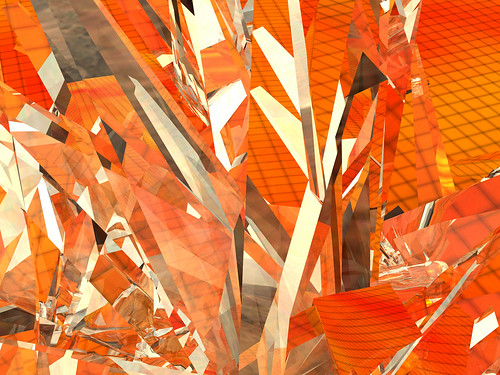
One final way that an aesthetic ideal is presented in Ecclesiast thought comes by view of beauty. Again turning to the philosophy of William Morris, beauty is the semblance of an ideal life. That is to say that expression, whether in deed or in artifice, must be an unhindered action which Morris relates when he says:
I demand a free and unfettered animal life for man first of all: I demand the utter extinction of asceticism. If we feel the least degradation in being amorous, or merry, or hungry, or sleepy, we are so far bad animals, and therefore miserable men (Society 177).
Here beauty is manifested through expression as an immediate function of the subjective self. So, Morris makes a connection to man as an animal so that there might be a heightened view of instinctual and fleshly urges thus promoting the idea of expression, not merely in art, but also in the procurement and progression of life in general. So, in this way expression becomes the path to a higher state of being.
Similarly, the Ecclesiast relates, "Do not be over-righteous and do not be over-wise. Why should you destroy yourself? Do not be over-wicked and do not be a fool. Why destroy yourself before your time?" (REB Ecc 7.16). Besides an obvious contrast to the Platonic stance of a high value of wisdom and knowledge, the Ecclesiast brings to light a similar idea to Morris in that the individual must not seek to over extend himself in the realm of legality, but the true essence of life comes in the free and unhindered life. While perhaps not going so far as to make extinct all asceticism, as Morris does, the author of "Ecclesiastes" most certainly presents a notion of being able to adhere to the demands of the animal side of human nature. So, the legalistic nature of Mosaic tradition becomes, not negated, but appropriated to a new stance on the independence of the individual subjectivity. Asceticism as far as it is related to guilt becomes obsolete, and it makes room for the animalistic and instinctual side of human nature.
Comparably, chapter nine promotes this sort of strike at legalism when it says:
[…] the righteous and the wise and whatever they do are under God's control; but whether they will earn love or hatred they have no way of knowing. Everything that confronts them, everything is futile, since one and the same fate comes to all, just and unjust alike, good and bad, ritually clean and unclean, to the one who offers sacrifice and to the one who does not. The good and the sinner fare alike […] (REB Ecc 9.1-2).
Here legality is struck in order to more appropriately digest the suppressed nature of the exiled nation, and it presents a notion of an apathetic social outlook. This then reverts back to Morris' strike at asceticism by revealing the truly helpless nature of the Israelites. It promotes the idea that the loss of control should be followed by the ineffectual nature of power seeking. That is to say that by noting a strike at legality, the Ecclesiast presents a means by which the Hebraic community is not uninvolved in the tenets of life, but they are untroubled by adverse circumstance; the Jewish community is powerless to change their circumstances and so should stop trying and find meaning in what they are. Other passages, namely chapter eight verse fourteen and chapter eleven verse four, recognize this same theme of striking legality, and this may again be tied to the ancient thoughts of Parmenides.
While the changing nature of the status of the Israelites may be characterized by the hope of future glory, already related to Heraclitian philosophy, the universe yet remains an unchanging constant for it is an extension or creation of the unchanging nature of God so that man has little effect on the outcome of His will. Relating back to Morris then, this ancient philosophy notes a way in which the community members are simply untroubled as they adopt their human nature as a normative function of reality and relent to the Parimedean thought of the unchanging nature of God. The Israelites are free to adopt their new mode of life in exile and yet cling to the tradition that up until that time had expressly required their sovereign independence.
No more do the words of Morris ring clear than when the Ecclesiast says:
Go, then, eat your food and enjoy it, and drink your wine with a cheerful heart; for God has already accepted what you have done. Always be dressed in white, and never fail to anoint your head. Enjoy life with a woman you love all the days of your allotted span here under the sun. Futile as they are; for that is your lot while you live and labour here under the sun. Whatever task lies to your hand, do it with might; because in Sheol [Hades], for which you are bound, there is neither doing nor thinking[…] (REB Ecc 9.7-10).
For, here the unfettered life is given in full proportion so that the highest value in life "is first the unconstrained life, and next simple and natural life. First you must be free; and next you must learn to take pleasure in all the details of life" (Society 178). So beauty, in all areas of life, is the main staple of it even in adversity, even in tragedy, even in toil, even in labor, and even in the midst of failure; beauty is the manifest way of life being lived for the sake of living. The Ecclesiast aesthetic frees the Jewish people to be who they are as they are, and it frees them from the social constraints and guilt associated with their failed monarchy and suppression under foreign leaders; Ecclesiastes screams in to the human psyche (and indeed unto us) to not be hindered by the imperfect nature of its soul and surrounding darkened world, but it calls it to find beauty in the midst of spiritual failure, solace in the wake of guilt, and reassurance in shadow of imperfection.
---------------------------------------------------------------------------
Morris, William. "The Beauty of Life." On Art and Socialism. Ed. Norman
Kelvin. New York: Dover, 1999. 35-56.
---. "The Society of the Future." On Art and Socialism. Ed. Norman
Kelvin. New York: Dover, 1999. 174-184.
Oxford Study Bible. 1976. Ed. M. Jack Suggs, Katherine Doob Sackenfield, and James R.
Mueller. Rev. ed. New York: Oxford UP, 1992.
Ruskin, John. "Modern Painters, IV: Of the Turnerian
Picturesque." Selected Writings. Oxford: Oxford UP, 2004. 82-92.
Suggs, M. Jack, ed. "Ecclesiastes." Oxford Study Bible. 1976. Ed. M. Jack Suggs,
Katherine Doob Sackenfield, and James R. Mueller. Rev. ed. New York: Oxford UP, 1992. 684.



















